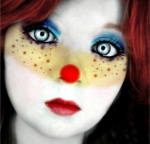When life is full of shit:
How often do you let other people’s nonsense change your mood? Do you let a bad driver, rude waiter, curt boss or an insensitive employee, difficult neighbour, ruin your day? Well, unless you are thick skinned like the Terminator, you’re probably setback on your heels. This happens to me regularly, even though I try to practice mindfulness but just now and then some Garbage Truck comes along and knocks me down for a while. I honesty think I am a sucker for punishment when it comes to life’s little niggles and being dumped on. However, the mark of success is how quickly you can recover and refocus on what’s important in your life. A few years ago I learned this small lesson. And I learned it in a city taxi. Here’s how the story goes:
I hopped into the taxi one day and we took off for the train station. We were travelling in the right lane when all of a sudden, a black car jumped out of a parking space right in front of us. My taxi driver slammed on his brakes, the car skidded, the tires squealed and at the very last moment our car stoped just one inch from the other car’s back end. It was a close call.
I couldn’t believe it.But I couldn’t believe what happened next. The driver of the other car, the guy who almost caused a big accident whipped his head around and he started yelling bad words at us. And for emphasis, he threw in a one finger salute, as if his words were not enough.
But then here’s what really blew me away. My taxi driver just smiled and waved at the guy as if old friends. And I mean, he was very friendly. So, I said, “Why did you just do that? This guy could have killed us!” And this is when my taxi driver told me what I now call, “The law of the Garbage Truck.”
He said, Many people are like garbage trucks.They run around full of garbage, full of frustrations, full of anger, and full of disappointment. As their garbage piles up, they look full of disappointment. As their garbage piles up even more, they look for a place to dump it. And if you let them, they dump it on you. So when someone wants to dump on you, don’t take it personally. Just smile, wave, wish them well, and move on. Believe me you’ll be happier.”
So I started thinking, how often do I let Garbage Trucks run right over me? And how often do I take their garbage and spread it to other people, at work, at home, or in the street? It was then that i said, “I don’t want their garbage and I’m not going to spread it anymore.”
I began to see Garbage Trucks all over. Like in the movie the Sixth Sense, the litte boy said, “I see dead people.” Well, now “I see Garbage Trucks.” I see the load they are carrying. I see them coming to dump it and sometimes it’s on me! Now, like my taxi driver, I don’t take is personally, I just smile, wave, wish them well, and I move on.
From an original story by David J Poolay with thanks.
Prayer for the day:
“Dear God.
So far today, I’ve done alright.
I haven’t gossiped. I haven’t lost my temper.
I haven’t been greedy, moody, nasty or selfish.
And I’m really glad about that.
But in a few minutes, God,
I’m going to get out of bed.
And from then on I’m going
to need a whole lot more help.
Thank You.
Amen”




















